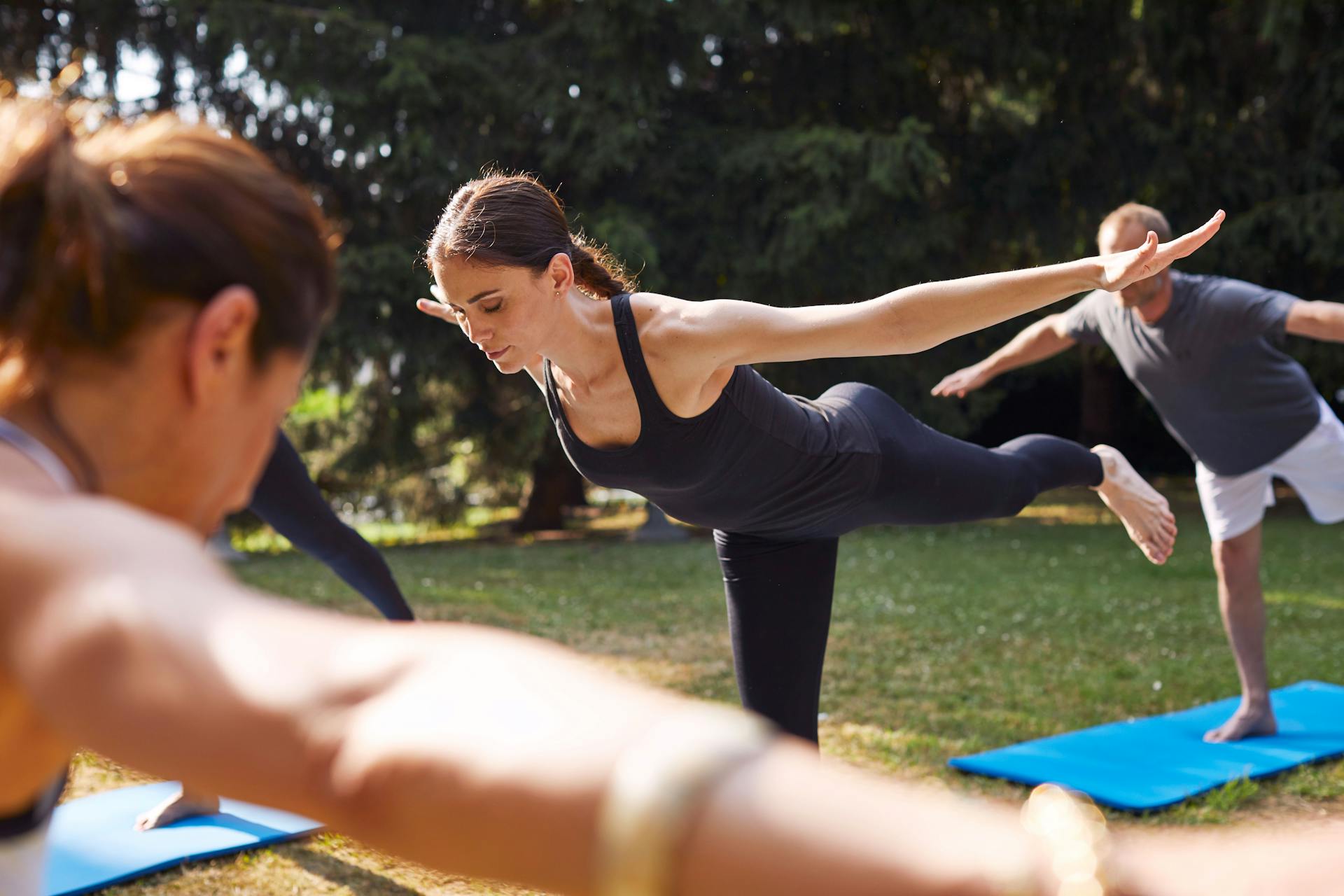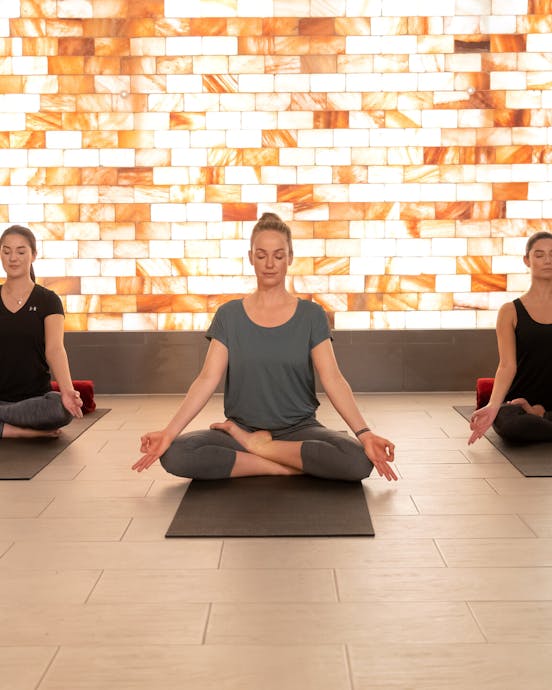Immunity is our body's ability to defend itself against external aggressions and internal attacks from viruses or common colds to cancers.
Based on an outstanding communication network within our bodies, including white blood cells, antibodies and certain organs, our immune response depends largely on us, however. As multiple studies have shown a correlation between a healthy lifestyle and optimal immune function, here is some practical expert advice on how you can support your immune system each day.


1. Physical Activity
Due to its well-known health benefits, such as managing weight, slowing down aging, improving cardio-respiratory functions and sleep quality, as well as reducing stress - the practice of physical activities and sports is essential in maintaining a healthy immune system.
By improving blood circulation, a moderate intensity exercise session allows immune cells to be transported efficiently throughout the body. This immunoprotective effect may even last a few days after exercising.
By contrast, strenuous activities, such as training for a marathon, seem to temporarily impair the immune system, activating the release of stress hormones into the body. This repeated stress makes the defence system vulnerable. So while you should not give up such an activity, you should be careful: if you are tired, simply decrease the frequency and intensity of your workouts.
Aspria wellbeing experts agree that physical activity can improve your immune system, but that moderation is key, recommending to limit yourself to sixty minutes of moderate activity per day.

2. Nutrition
The basics of a healthy and balanced diet
The Superior Health Council in Belgium (CSS) provides 5 recommendations for a healthy diet:
· Eat at least 125 g of whole grain food every day, favouring, for example, whole grain bread over white bread etc.
· Eat 250 g of fresh fruit per day and at least 300g of vegetables (raw or prepared). Vary your choices of fruits and vegetables as per the seasonal local offer.
· Eat legumes weekly, replacing meat with legumes at least once a week. The cultivation of pulses also has a low impact on the climate.
· Eat 15 to 25g of nuts or seeds without salty or sweet coating every day. It is important to choose products rich in omega-3 fatty acids, such as walnuts, hazelnuts, pistachios, almonds.
· Choose products low in salt and avoid adding salt when preparing your meals, opting for aromatic herbs and unsalted spices instead.
The CSS has another recommendation complementing a healthy diet: encouraging people to eat together as much as possible, so that meals become a pleasant, social experience.
Food Deficiencies
Monica Schettino, Aspria nutrition advisor, explains: “In a perfect world, adopting a balanced natural diet, emphasizing fruits and vegetables and banning processed products should be enough to guarantee we absorb all the micronutrients and macronutrients that our body needs".
However, our environment and our hectic lifestyle inevitably lead to nutritional deficiencies. Most commonly in magnesium, vitamin D and iron, vitamin C, zinc and B vitamins. In these cases, supplements may be incorporated into your healthy diet - bearing in mind however that their intake must be monitored medically.
3. Stress Reduction
Our daily habits are linked to varying degrees of stress, which ultimately have an impact on our health and, by extension, on the resilience of our immune system functions. Meditation, relaxation and a proper control of your breathing are all helpful in successfully managing stress levels.
Importance of breathing
We all take breathing for granted – something our body does subconsciously, adapting its patterns to our environment and to our ongoing activities.
As babies, we naturally breathe abdominally – that is, breathing in such a way that our belly moves in and out. This deep breathing is very relaxing. However, the way we breathe tends to change as we get older. We switch to shallow breathing, and that’s because the short, fast breaths we usually associate with feeling scared are also brought on by stress. As a result, we only ever breathe into the top third of our lungs and we aren’t getting the oxygen we need to keep our brains and bodies operating optimally.
Once these bad habits are ingrained, you have to consciously reverse them, teaching your body how to breathe again. There are simple ways of doing that. While you’re sitting at your desk, every hour or two, take a moment to focus on your breathing. Take 10 slow, deep breaths right into your belly, so that it expands when you breathe in; if unsure, place your hand on your belly to feel it move. Inhale through your nose and exhale through your mouth. Over time, your body will re-learn how to breathe correctly!
Relaxation
Breathing is central in the practice of meditation as well, and this too, has powerful effects in combating stress. With a variety of solutions available, from professionally led sessions to dedicated apps, meditation is an ideal option for those with hectic schedules, in great need of clarity and calm.
Whenever you prefer a more engaging activity, moderate physical exercise is a perfect alternative; whether it’s a yoga session, a spinning class or weight training, the physical effort forces you to rebalance and refocus your energy.
Your stress levels can also be managed by allowing yourself moments of relaxation. A spa treatment, a sauna session or a massage can easily be incorporated into a healthy lifestyle, and they provide you with both mental and physical benefits.

4. Quality Sleep
For a long time, sleep has been incorrectly omitted from the list of factors that are essential to a healthy lifestyle, but sleep disorders are in fact the root of many health problems - from weight gain to the risk of stroke. Sleeping the right way can help boost our immune system.
Quantity or quality?
How many hours should we sleep each night? Everyone has different needs; some people can settle for 5 or 6 hours a night, but on average 8 hours are required for a good night's rest.
Aspria experts recommend however focusing more on sleep quality and adopting a regular sleep pattern – such as going to bed and waking up at regular times and sleeping the same number of hours each night.
In practice
Somnologist Charlotte Edelsten provides some additional practical advice. Maintaining a low body temperature is essential during the night: ideally 2 degrees below the usual daytime temperature. A proper dark setting in your bedroom is also important.
Other recommendations include avoiding late dinners or smoking in the evenings (nicotine acts as a stimulant). The last coffee of the day should be during the lunch break, because caffeine remains in the body for up to 12 hours, and the consumption of alcohol should be limited.
Finally, exercising increases the production of serotonin, which in turn boosts the production of melatonin, the hormone that promotes restful sleep. However, it is important to practice the right physical activity at the right time of the day. A short walk before going to bed is no problem; but an intensive workout in the evening will prevent you from sleeping well, increasing your blood pressure and the production of cortisol, the stress hormone.



